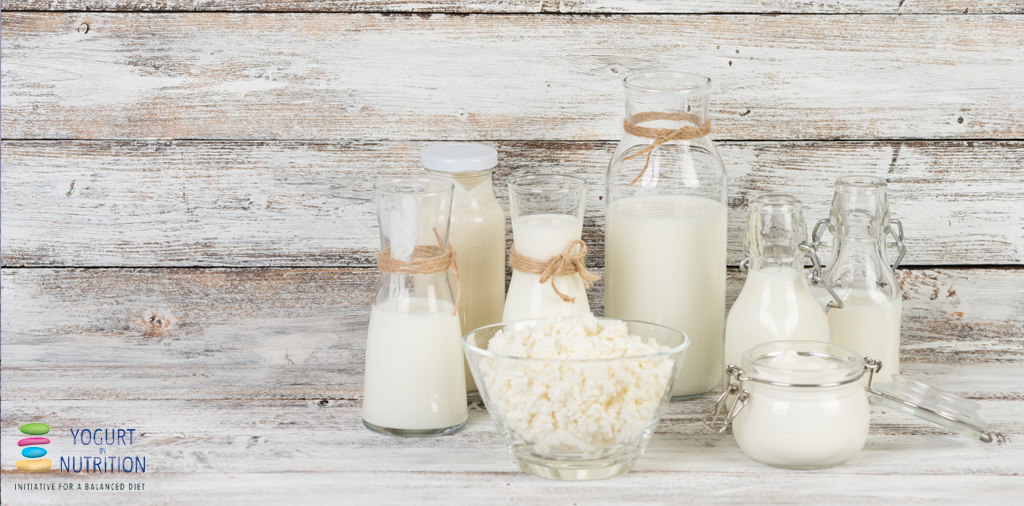It’s time to look at one of the main topic we covered in 2019: Many publications on fermentation benefits and effects were analyzed and you may have discovered some of the fermented milk around the world thanks to our infographics. Look back at this year of publications !
Which fermented foods contain the most “friendly” bacteria?
Choosing fermented foods such as yogurt can be a great way for us to ingest ‘friendly’ live bacteria that may be associated with health benefits. But not all fermented foods contain live microbes and when they do, the numbers of these tiny life forms can vary hugely between products, say the authors of this article (Rezac et al.,Frontiers in Microbiology, 2018).
Can fermented foods boost physical and mental health?
A happy gut means a healthy mind and body. Unlocking all the secrets held in our guts and understanding what influences them could help us combat a raft of health conditions. That’s why the gut microbiota – the trillions of bacteria that inhabit our gut and play a vital role in keeping us healthy – are one of the hottest topics in scientific research today (Bell et al. Foods, 2018).
Friendly yogurt bacteria may give health a helping hand
Take a stroll through any supermarket these days and you’ll see a host of probiotic foods. They contain live microbes, including ‘friendly’ bacteria that may be present naturally or added to the food . They aim to improve the balance and function of our own microorganisms living in our gut (Volokh et al. Nutrients, 2019).
Fermented milks around the World
For centuries, fermented milks have provided essential nutrients and health benefits in human diets. Milk fermentation is as simple as adding live ferments to milk, leading to dozens of popular recipes around the world. How different are they?
Traditional African fermented dairy foods could hold the key to better health
A camel roams the Sudanese desert. On its back it carries a leather bag made of goat’s skin nestling in wet grass. The bag contains a liquid that’s continuously slopped around by the camel’s jerky movement. The liquid contains a secret ingredient with a mysterious power. Discover more about this African fermented milk (Agyei et al. Critical Reviews in Food Science and Nutrition, 2019)…
Get the science facts about Greek yogurt, lassi, skyr, laban, ayran orkefir…
What is Greek Yogurt?
Greek yogurt, initially « Yiaourti », is the recipe originated in Greece. Many call it also the Mediterranean-style yogurt. It is traditionally eaten as a soft savory cheese + olives, olive oil, fresh vegetables, herbs, bread… Today, “Greek yogurt” is very trendy worldwide and may have several names. Greek yogurt is a higher protein yogurt (≥5.6%) with a smooth creamy mouthfeel.
What is Lassi?
Originated from India, the Lassi is a creamy, frothy fermented milk drink, blended with water and various fruits or seasonings and always served chilled, either sweet or salted and sometimes consumed to help relieve the burning sensation of spicy food.
What is Kefir?
“Kefir” comes from Turkish “Keyif”, meaning good feeling. It is originates from Caucasian mountains in Russia & Central Asia and is popular in Middle East, Eastern Europe and Sweden. Kefir is a drink, started with the kefir grains that clump together various bacteria and yeasts (vs only 2 bacteria in yogurt).
This leads to a double fermentation (lactic + alcoholic) and develops the sour & fizzy attributes of kefir. Kefir drinks can also be prepared by fermenting fruit juices, coconut water or molasses.
What is Skyr?
Skyr is a fermented fresh acid-curd soft cheese made from skim milk. Intense straining gives it a dense texture, so thick that a spoon will stand up in it. Skyr is a central part of the Icelandic diet and culture, brought 900 years ago by the Vikings from Norway. Originally made from ewe’s milk, it is produced from cow’s milk since the 20th century.



